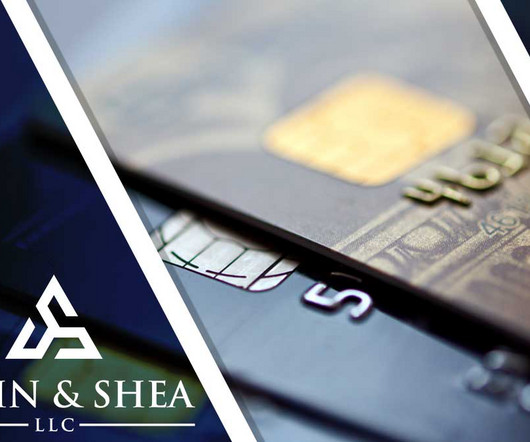Tips For Credit Card Debt Relief
Sawin & Shea
FEBRUARY 2, 2022
Credit card debt can be debilitating. When your bills are more than you can handle and you are struggling to get by, debt relief options can help. However, it’s important to understand that there are various forms of debt relief, and they are not all right for everyone. Debt Management Programs.













Let's personalize your content